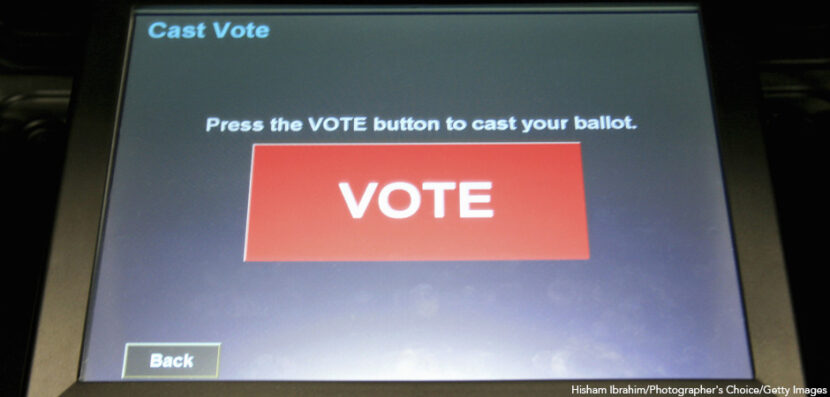Two Iranian Men Charged with 2020 Election Tampering
Last week, the U.S. Department of Justice charged two Iranian men with a plot to undermine the 2020 United States election. Election Central takes a closer look at the details of this story.
What Happened?
Before the 2020 election, two Iranian men–Seyyed Mohammad Hosein Musa Kazemi and Sajjad Kashian–allegedly tried to break into eleven state election databases. They successfully accessed one database and managed to steal confidential information about roughly 100,000 voters. Kazemi and Kashian also broke into a U.S. media company’s computer network to circulate false information about the election. The pair created a video saying that U.S. elections are vulnerable, and they planned to use the media outlet to share it. They hoped to weaken voter confidence in the election.
A month before the election, they also sent out Facebook messages posing as a group of volunteers from the Proud Boys, a far-right group, to Republican members of Congress and members of Donald Trump’s campaign. These messages told the recipients that Democrats were going to try to register fake voters and take other steps to undermine the election. Kazemi and Kashian also sent emails to tens of thousands of registered voters, again posing as Proud Boy volunteers. These emails threatening the voters with physical injury unless they switched parties and voted for Trump. They also allegedly created and circulated a fake video on social media showing people undermining the election. The goal of all of this, authorities say, was to further increase political hostility and erode trust in the U.S. election system in the weeks leading up to the election.
Were They Successful?
According to U.S. law enforcement, however, nothing that the hackers did had any impact on the election results. Furthermore, the Federal Bureau of Investigation (FBI) intervened in time to stop their plans. The media company was able to repel the hackers before they could spread any of their misinformation to voters.
What Are the Charges?
Both men are charged with one count of conspiracy to commit computer fraud and abuse, intimidate voters, and transmit interstate threats.. They are also charged with one count of voter intimidation and one count of interstate threats. Kazemi is also charged with one count of unauthorized computer intrusion, and one count of knowingly damaging a protected computer.
The U.S. Treasury Department has also placed economic sanctions against both men, as well as Emennet Pasargad, the Iranian cybersecurity company they both worked for. Four of the company’s executives are also facing economic sanctions. The hackers are not in the custody of the Justice Department yet. The State Department’s Rewards for Justice Program is offering a reward of up to $10 million to anyone with information about the case. U.S. government officials believe that the men are currently in Iran.



